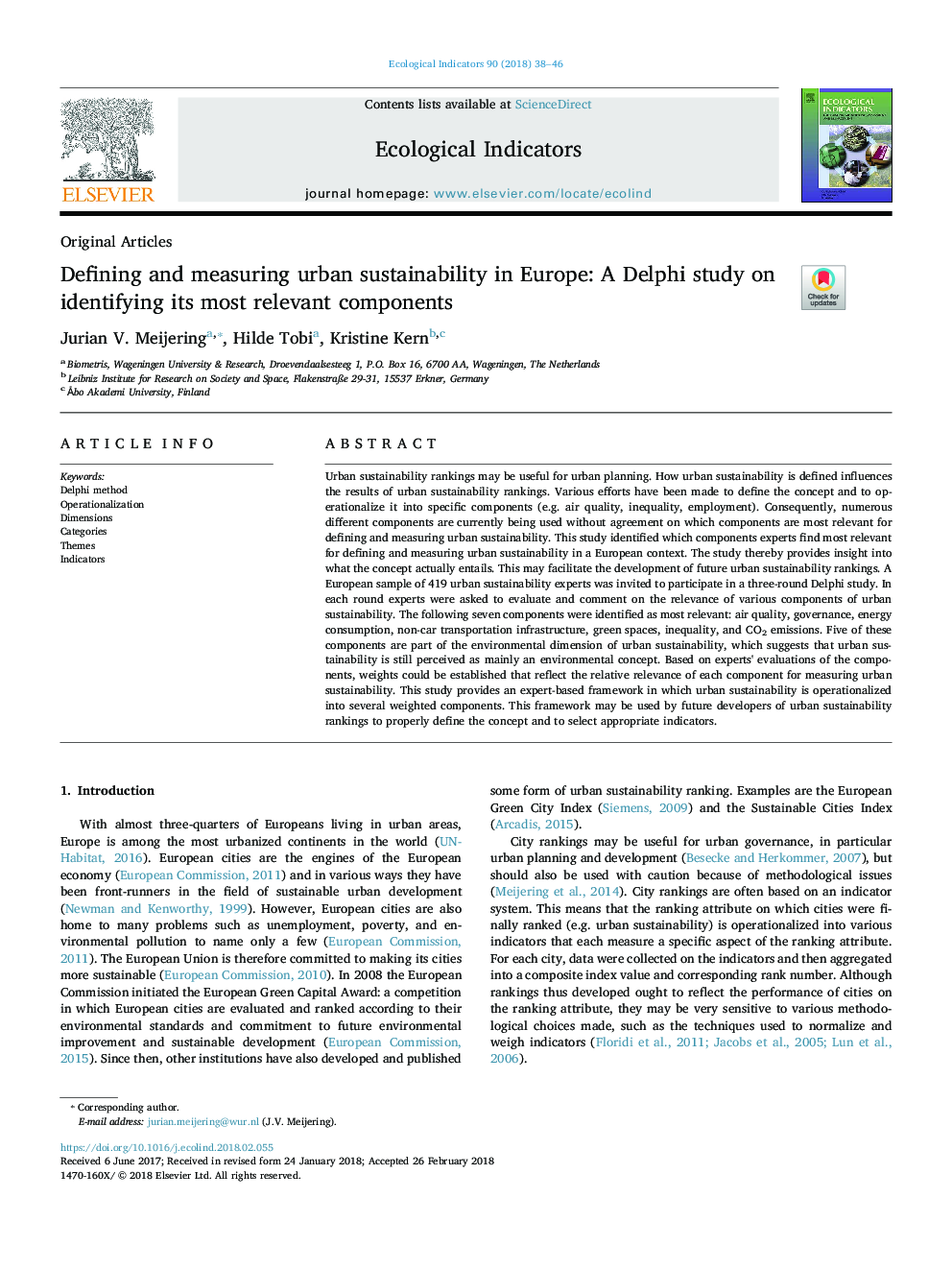| Article ID | Journal | Published Year | Pages | File Type |
|---|---|---|---|---|
| 8845335 | Ecological Indicators | 2018 | 9 Pages |
Abstract
Urban sustainability rankings may be useful for urban planning. How urban sustainability is defined influences the results of urban sustainability rankings. Various efforts have been made to define the concept and to operationalize it into specific components (e.g. air quality, inequality, employment). Consequently, numerous different components are currently being used without agreement on which components are most relevant for defining and measuring urban sustainability. This study identified which components experts find most relevant for defining and measuring urban sustainability in a European context. The study thereby provides insight into what the concept actually entails. This may facilitate the development of future urban sustainability rankings. A European sample of 419 urban sustainability experts was invited to participate in a three-round Delphi study. In each round experts were asked to evaluate and comment on the relevance of various components of urban sustainability. The following seven components were identified as most relevant: air quality, governance, energy consumption, non-car transportation infrastructure, green spaces, inequality, and CO2 emissions. Five of these components are part of the environmental dimension of urban sustainability, which suggests that urban sustainability is still perceived as mainly an environmental concept. Based on experts' evaluations of the components, weights could be established that reflect the relative relevance of each component for measuring urban sustainability. This study provides an expert-based framework in which urban sustainability is operationalized into several weighted components. This framework may be used by future developers of urban sustainability rankings to properly define the concept and to select appropriate indicators.
Related Topics
Life Sciences
Agricultural and Biological Sciences
Ecology, Evolution, Behavior and Systematics
Authors
Jurian V. Meijering, Hilde Tobi, Kristine Kern,
